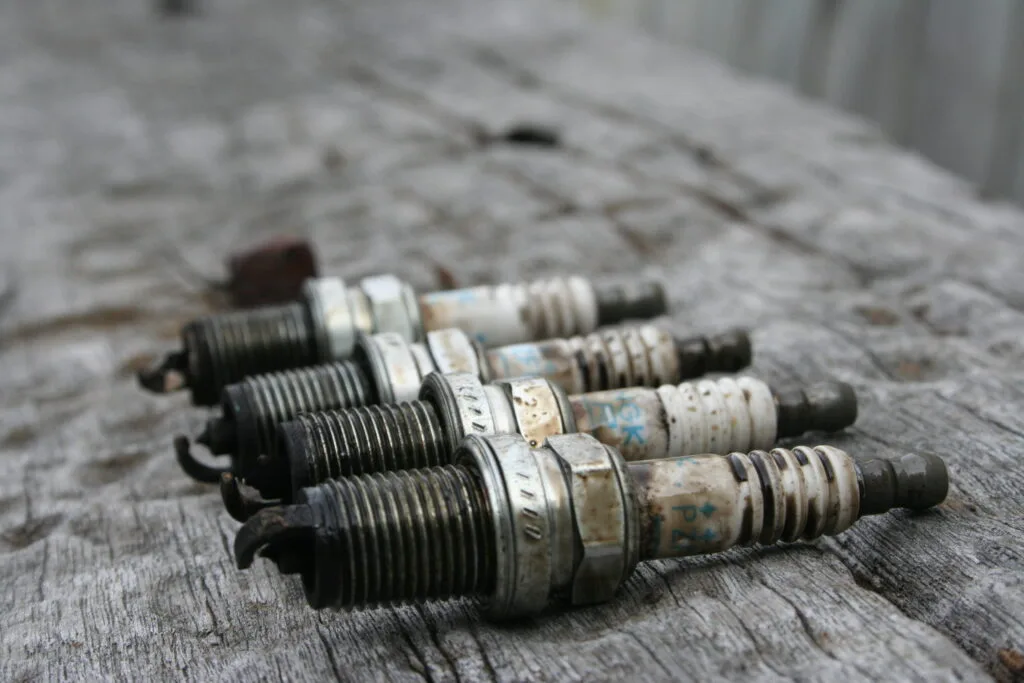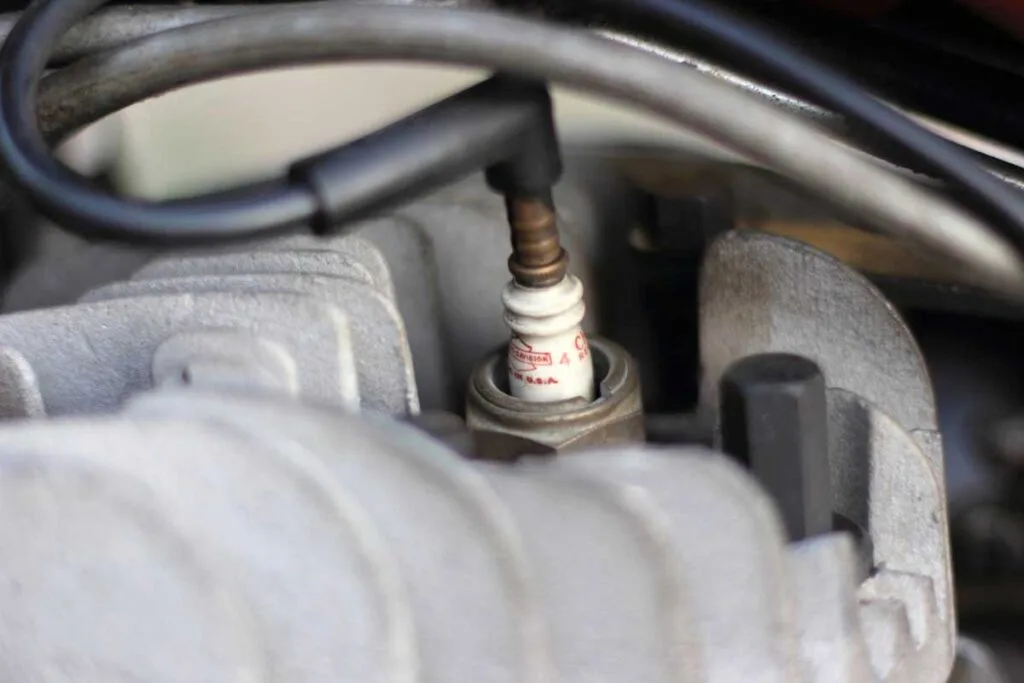Spark, you get what it does by just its name. Spark plugs create a quick electric spark, causing the engine to start fuel combustion for starting the engine. So properly working spark plugs are really important for a vehicle to start quickly and run smoothly.
So, it is essential to keep those sparks working fine. If they are not working fine, you need to change them into new ones. So, in this article, we will discuss the problems after changing spark plugs.
By putting the engine’s pistons in action, your automobile can power up, remain powered up and create a smooth burn of the compressed air-fuel combination. Mind you; spark plugs enjoy being hot: they resist intense heat and pressure inside your cylinders and are engineered to burn off deposits from fuel additives or other pollutants.
What do they do?
In simply, they are responsible for starting the engine. When there are no spark plugs or the available ones are malfunctioning, you cannot go anywhere because you cannot start the vehicle. When they get old, and after a number of sparks, they tend to malfunction and start giving problems. So, then you will have to change them to new ones.

It seems to reason that weak or damaged spark plugs create difficulties, whether it is with cold-starting or misfiring during acceleration, as spark plug health is directly tied to engine performance. Moreover, if you don’t have healthy ones, your ride won’t be able to maintain its optimum power, and your car’s fuel efficiency will suffer. Then, no one wanted it.
How often do you need to change spark plugs?
When discuss about the Problems after changing spark plugs, Usually, and luckily, you don’t need to change your spark plugs for years because quality spark plugs have a longer life span than most other vehicle parts. But there are still instances where you will have to change the plugs very soon.
Spark plugs are recommended for replacement every 30,000 miles by most car manufacturers, although this recommendation is based on the condition and type of the spark plug. When compared to copper spark plugs, which have the lowest life expectancy, plugs made of more modern and long-lasting materials may last up to four times as long.
Why do you have to change spark plugs?
As we’ve mentioned, the spark plugs gradually become malfunctioned with time. So, what are those malfunctions are?
Spark plugs have endured thousands of miles of misuse and the most severe temperatures and conditions to remain intact by the time they reach old age. Here, the relevance of spark plug materials is highlighted.
The sturdier and more long-lasting the spark plug is, the better the material. Regardless of the substance, spark plugs will eventually wear out.
Here is the reason why spark plugs don’t last indefinitely:
- An accumulation of deposits on the spark plugs may cause pre-ignition of the fuel if the air-fuel combination interacts with them. Because of this, your car’s source of power will be choppy and unstable.
- To generate the proper degree of combustion at the right time in an engine, it is necessary for a spark plug’s filament to move across a gap of space. This gap expands as the spark plugs age due to severe temperatures, debris, and typical wear and tear. A large gap might cause combustion to be irregular or completely ineffective.
Benefits of changing the spark plugs.
This will be more crucial when talk about the Problems after changing spark plugs.
Optimal combustion is produced on a regular basis. Spark plugs that work correctly are a sign of a well-working combustion system. If you can get this up and running, the performance troubles you’re now encountering may become a thing of the past.
Higher mpg (miles per gallon).
According to the National Institute for Automotive Service Excellence, missing spark plugs may impair fuel economy by 30%. Fuel efficiency is increased, and money is saved by replacing the plugs at the recommended intervals.
Everything gets off to a great start.
The first time you turn the key in your car with a new spark plug, you may be surprised by what happens. Those jerky starts may have been caused by your car’s use of an outdated spark plug.
Emissions that are less hazardous to the environment.
According to the EPA, frequent engine tune-ups, particularly those involving spark plugs, save fuel and decrease pollutants in the air. A win-win situation.

Problems after changing spark plugs.
Misfires.
You know that stuttering feeling you get when your engine stutters for a split second? The most common reason for a misfire in a cylinder is a spark plug that has become filthy, broken, or damaged. Try using a wire brush and a spray of plug cleaner if your plugs don’t seem broken or damaged but are unclean.
It’s tough to be idle.
Changing or cleaning your plugs may be necessary if your engine sounds harsh and vibrates excessively when idling.
Excess fuel is burned.
Another clue that you may have a spark plug issue is poor fuel efficiency. It’s not necessarily a sign that you need to get new plugs. It is possible to modify the space between the spark plug electrodes, enabling it to burn fuel more effectively.
A Difficult Start.
The engine may not be able to start if the spark plugs are worn out, making it difficult, if not impossible. Spark plugs may need to be replaced if you have to rev the engine many times to get your automobile to start.
When it comes to accelerating, though, he pauses.
When your automobile stutters and then surges when you step on the gas pedal, you may have an issue with the spark plugs. Your spark plugs may need to be cleaned, but you may need to replace them if that doesn’t work.
FAQs about Problems after Changing Spark Plugs.
What can go wrong when changing spark plugs?
Spark plugs may cause engine damage if they are improperly removed or installed. If you want to reuse a spark plug wire, care must be given while removing it. A spark plugs threads might be damaged when being installed in the engine. In the long run, this might prove to be an expensive oversight.
Why is my car sputtering after I changed the spark plugs?
The sputtering of the engine may be caused by a variety of things. A vacuum leak, a broken oxygen sensor, a failing catalytic converter, or even an issue with the fuel system are all possibilities.
How can you tell if an ignition coil is bad?
- Check Engine Light Is On. A broken ignition coil is all it takes to bring on the Check Engine Light in today’s modern cars.
- Engine stalling out. Your engine will most likely misfire if an ignition coil is malfunctioning.
- It’s a struggle to get going.
- Poorer Gas Mileage.
- Reduced energy.
- Uncontrollable Mishaps
We hope you’ve got the answer that you’ve needed for the question, “problems after changing spark plugs” reading our explanation. If you have more questions just leave a comment below, and we are really straightforward to help you further. If you need review or matters of the fuel additive to prevent vapor lock , check this link for it. Thank you.
